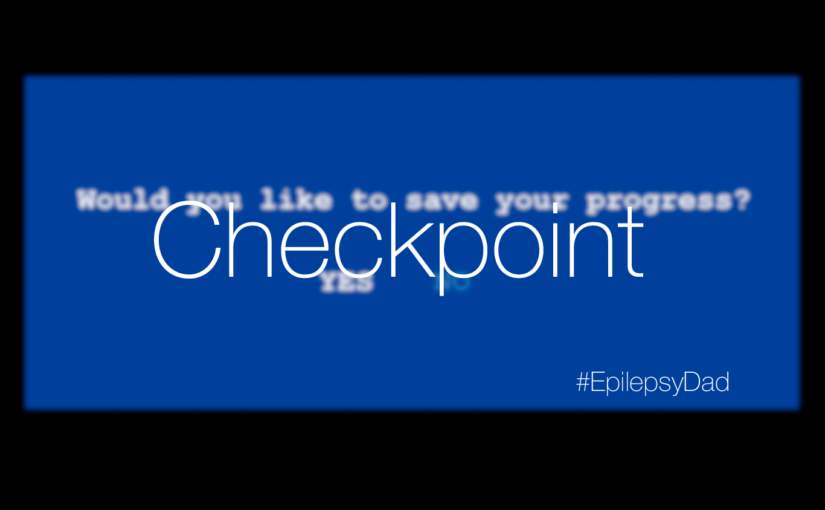It’s a new year.
In video games, after you make progress or achieve an accomplishment, you save your game and create a checkpoint. It’s a snapshot of the way things are at that moment. That way, if anything happens after that point, you can always revert to the checkpoint. Everything before the checkpoint already happened and can’t be undone, but anything that happens after the checkpoint becomes volatile until the next checkpoint is created.
There were so many changes and developments for our family last year. We started last year by adding my son’s service dog to our family. After almost 20 years with the same company, I decided to leave and take a different job at a new company. After 7 years of struggling with the school system, we found a school that is a better fit for my son. Because of that, after 7 years of living in the city of Philadelphia, we also moved to the suburbs.
Most of last year was about those changes, and for most of the year, they felt like changes in transition rather than an end state. As we came upon the new year, I wanted to shift that mindset from “in transition” to “this is the way things are.” I wanted to create a checkpoint that solidified those changes in a way that allowed us to look forward and build new things on top of the old and create new experiences from that point in time.
Of course, the checkpoint includes the both the good and the bad, and last year wasn’t all good. It never is. My son still has epilepsy. We are still very much in the middle of a pandemic. The planet and its people are continuing to degrade. We continue to make choices that hurt each other because we’re too selfish or ignorant or malicious. We still need to be right. We still need to be justified. We still need to win. Or maybe we’re just too hurt ourselves. People are messy.
That pain is part of this checkpoint, too. Some of it is harder to leave behind and accept as “facts from the past” because it seems determined to infect this year, too, and influence the volatile nature of the present and future. As much as the hope is to leave the hurt and the actions and the trauma in the past, it’s hard to ignore their echoes that exist in the present.
A checkpoint also means you can’t go back. You move forward. You can do things differently from that point on, but you can’t go back and undo what has already been done. That’s the risk of creating one. But in life, we can’t go back. Wishing we could go back and do it differently or make different choices is focusing in the wrong direction and prevents us from accepting what is and focusing our attention on the only direction we can actually influence.
Forward is where we have choice. Forward is where there is possibility. Forward is where there is a chance to heal. Forward is where there is intention. Forward is where there is hope.
It’s not a matter of letting go – you would if you could. Instead of “Let it go,” we should probably say “Let it be”.
John Kabat-Zinn
